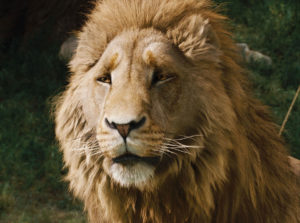Sex In The Story 7: Patri-Archetypes

Have feminists or patriarchalists killed fatherhood? Not at all. Fathers are alive and well.
Hereâs a timely topic: fathers. In speculative stories, it seems the more-epic a story gets, the more likely the author tries to explore Father Issues.
Oh wait. Fred Warren already explored that, and not even near to Fatherâs Day.
In that case, this column will take off from his, along with reviving the Sex in the Story series â which explores, not steamy scenes of romance and such (I am so sorry), but gender differences seen in stories.
Fathers are all over most speculative stories. These can be done well or done poorly.
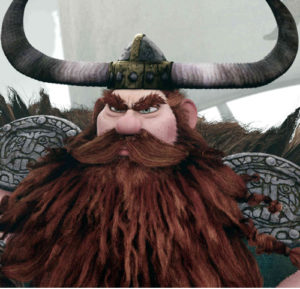
- How to Train Your Dragon explores father issues very well.
In a recent re-viewing, I noted how much the 2010 Dreamworks animated film urges audience to sympathize not only with Hiccup, the awkward teenage son of Viking village leader Stoick the Vast, but with Stoick himself. Just when you think this may be another teen-proves-idealistic-youth-triumphs-over-traditionalist-age, the film subverts that with warmth, humanity, and mutual apologies and learning between father and son. Fantastic animation and acting only aids this theme.
- The Disney 1964 musical film Mary Poppinshandles father issues a bit poorly.
Of course, this is a classic of music and animation, and I enjoy this movie too, but letâs admit it: Dick Van Dyke does a bad cockney/British/Scottish/South England/North England whatever accent he does. But besides that, the movieâs moral is that Daddy Needs to Learn a Lesson. Iâm still not sure what that lesson was. Anyway, the story extricates him from any consequences by deus ex machina. I know, Iâm a grump.

- The Star Wars film series is the modern-classic example of father issues done right.
The original trilogy has defined a stereotypical âbad fatherâ and his redemption arc for several generations already. Everyone knows (and misquotes) âNo, I am your father.â Still, its resolution is that good-son-redeems-bad-father, a twist on the âprodigal son.â Do I suggest that Luke should have learned from Darth Vader? Not really. But any other story exploring father issues could twist the template yet again.
- Finally, The Chronicles of Narnia: The Voyage of the Dawn Treaderfilm (Fox/Walden, 2010) shows âfather issuesâ done horribly wrong, or rather, barely done at all.

Great actor. Simplistic subplot.
- Someone decided the movie needed to show King Caspian doing something, or having a Redemptive Arc, instead of simply captaining the ship and being kingly. (Furthermore, it wouldnât do to show film-Caspian building up to what the book showed was his desire, all along, to go to Aslanâs Country suicide-style and forsake his responsibilities as Narniaâs monarch. It just wouldnât do because ⊠because ⊠because giving anything to see Aslanâs Country just doesnât make sense, right?)
Thus, we get a serving of Father Issues in a little plastic tray, slid out from a thin cardboard box. Peel off the cellophane and you get Caspian pining for his lost father, and kinda-sorta wanting to see him again. With no real change in his desires, he suddenly makes an about-face and realizes he shouldnât want this. As a friend of mine put it: why did Caspian not even mention his mother and wanting to see her?
That brings me to my central theme: that despite the stories that explore Father Issues half-heartedly, or that â like the Dawn Treader movie â merely toss them on top to try to seem epic or profound, itâs fascinating that authors want to explore these at all.
Isnât out society past such themes? Some people would think so:
- According to secular feminists, liberated women should be doing even more victory laps after âtaking overâ news media, academia, and Hollywood with their rhetoric.
- According to Christians who have experienced bad fathers, or even notions of âpatriarchyâ that abuse Scripture (and people, especially women), we should focus more on the truth that weâre one in Christ, and not worry about specific âroles.â
These canât be right. Too much evidence proves many in our culture think otherwise. Deep down, we suspect that, even if many fathers stink, they should be great:
- Among Christians, father-oriented teaching and books are more popular. (And I think we may have finally left the Wild at Heart notion of âreal men are mushy poet types who fancy themselves studs even as theyâre whimpering over how much Jesus their lover loves them and bemoaning their inevitable Wounds From Fathers.â)
- Almost all speculative stories, including âsecularâ ones, fall all over themselves to explore Father Issues, and to present dads or father-figures as good role models.
-

A “trolldad” plotting good-natured mischief on his children, who evidently enjoy being his victims.
Tween-or-older âmillennialsâ who hang out on âmemeâ websites (such as this one) have a unique desire to credit, tribute, venerate, and repeat the purported pranks and wisdom of a character commonly dubbed âTrolldad.â This is one case that surprises me most. If weâre really such a feminist, family-rejecting and fatherhood-detesting culture, why this eagerness to exhort dads as awesome figures? Even more, why do these folks constantly make themselvesinto the butt of the jokes?
So, why do you believe speculative stories, in particular, are so apt to explore issues of fathers and children? Which father-oriented stories have you enjoyed and why? Which ones havenât done so well? And finally (perhaps most vital), will you defy niche-trench-digging and give your own father a Christian speculative novel for this Fatherâs Day?
































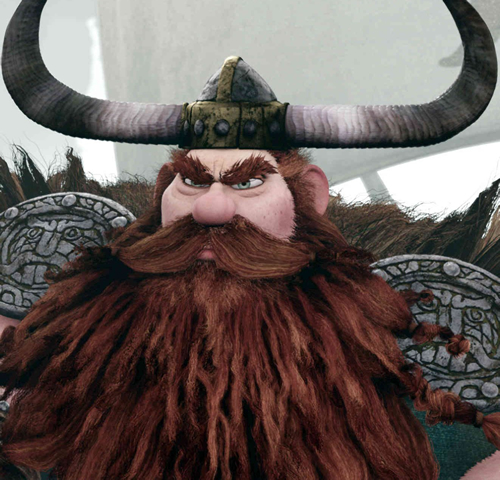
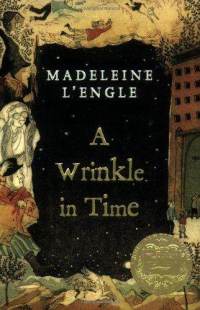



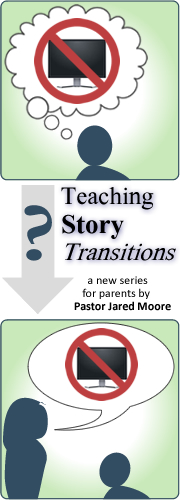
 Summer is here, school work is over, and rest has begun. Â Most children, however, will not rest from enjoying stories this summer. They will hear about new movies, television shows, or even books. And with each new offering you, as a parent, may consider two choices:
Summer is here, school work is over, and rest has begun.  Most children, however, will not rest from enjoying stories this summer. They will hear about new movies, television shows, or even books. And with each new offering you, as a parent, may consider two choices: One example is Todd Friel (whom I respect), host of
One example is Todd Friel (whom I respect), host of 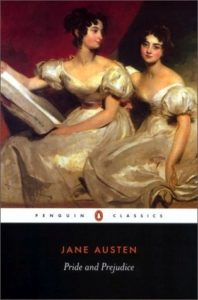 This is what I mean by arbitrary legalistic boundaries. If one sins by enjoying Harry Potter, then one also sins by enjoying Pride and Prejudice. If a little evil corrupts the whole form of story, and the witchcraft corrupts Harry Potter, then disobeying the command to love oneâs neighbor as oneself in Pride and Prejudice corrupts the whole as well.
This is what I mean by arbitrary legalistic boundaries. If one sins by enjoying Harry Potter, then one also sins by enjoying Pride and Prejudice. If a little evil corrupts the whole form of story, and the witchcraft corrupts Harry Potter, then disobeying the command to love oneâs neighbor as oneself in Pride and Prejudice corrupts the whole as well. As I have studied Scripture more and began to understand how all of creation, including humanity, serves to send humans running to God in worship, I have sought to participate in storytelling media for this purpose. Through over ten years of ministry, I learned that most Christians, regardless of age, are ill-prepared to live in a media-filled world.
As I have studied Scripture more and began to understand how all of creation, including humanity, serves to send humans running to God in worship, I have sought to participate in storytelling media for this purpose. Through over ten years of ministry, I learned that most Christians, regardless of age, are ill-prepared to live in a media-filled world.
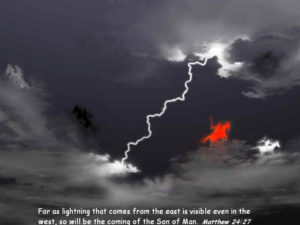


 Community reading. Many Christians have forgotten this lost art. Instead they presume we show up at church to sing, listen, mingle, eat, and toss cash and checks into oddly shaped baskets â but reading the Bible? Thatâs something you do by yourself, in your Quiet Time, presumably just before Coloring Time and after Apple Juice and Goldfish Crackers Time.
Community reading. Many Christians have forgotten this lost art. Instead they presume we show up at church to sing, listen, mingle, eat, and toss cash and checks into oddly shaped baskets â but reading the Bible? Thatâs something you do by yourself, in your Quiet Time, presumably just before Coloring Time and after Apple Juice and Goldfish Crackers Time.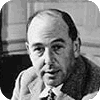 If you like, catch up on
If you like, catch up on 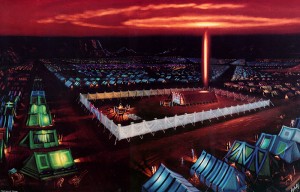
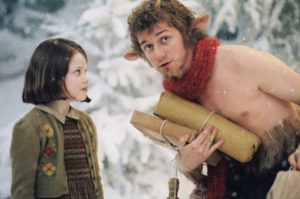 Chapter 2: What Lucy Found There
Chapter 2: What Lucy Found There (Answers.) What Lewis does with Tumnus is exactly what he does with other âpaganâ creatures in Narnia. He redeems them. He takes these fun and imaginary creatures from their pagan stories, which are well-written but have some anti-Biblical themes, and says No, you canât have it! This belongs to God! We see this later in Prince Caspian with the pagan figures Bacchus and Silenus, and we see it here with Mr. Tumnus. He makes the right choice, based on his hope in the prophecy and likely in Aslan himself. (Thatâs why I love how in the 2005 film, Aslan appears in the fire and roars angrily, which prevents Tumnus from completing the sinful action he had planned.) Instead of following after old âfaunsâ originally made up for tales of wickedness, Tumnus is redeemed for Aslan.
(Answers.) What Lewis does with Tumnus is exactly what he does with other âpaganâ creatures in Narnia. He redeems them. He takes these fun and imaginary creatures from their pagan stories, which are well-written but have some anti-Biblical themes, and says No, you canât have it! This belongs to God! We see this later in Prince Caspian with the pagan figures Bacchus and Silenus, and we see it here with Mr. Tumnus. He makes the right choice, based on his hope in the prophecy and likely in Aslan himself. (Thatâs why I love how in the 2005 film, Aslan appears in the fire and roars angrily, which prevents Tumnus from completing the sinful action he had planned.) Instead of following after old âfaunsâ originally made up for tales of wickedness, Tumnus is redeemed for Aslan.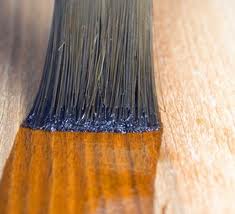





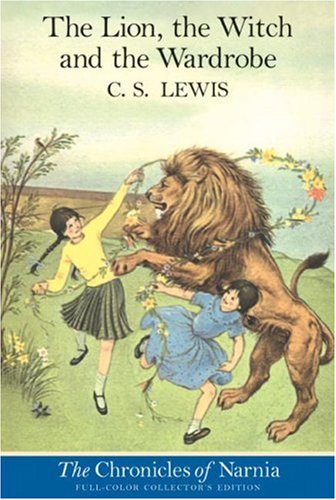
 With this series I want to pull back a bit. Go back to basics. Back to the simple fantasies that most of us discovered, as children or children at heart. Back to the over-discussed but still vital role of C.S. Lewis. Back to Narnia. And of course, back to the famous Wardrobe.
With this series I want to pull back a bit. Go back to basics. Back to the simple fantasies that most of us discovered, as children or children at heart. Back to the over-discussed but still vital role of C.S. Lewis. Back to Narnia. And of course, back to the famous Wardrobe.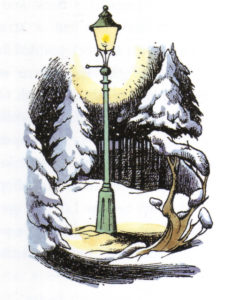 Opening discussion
Opening discussion